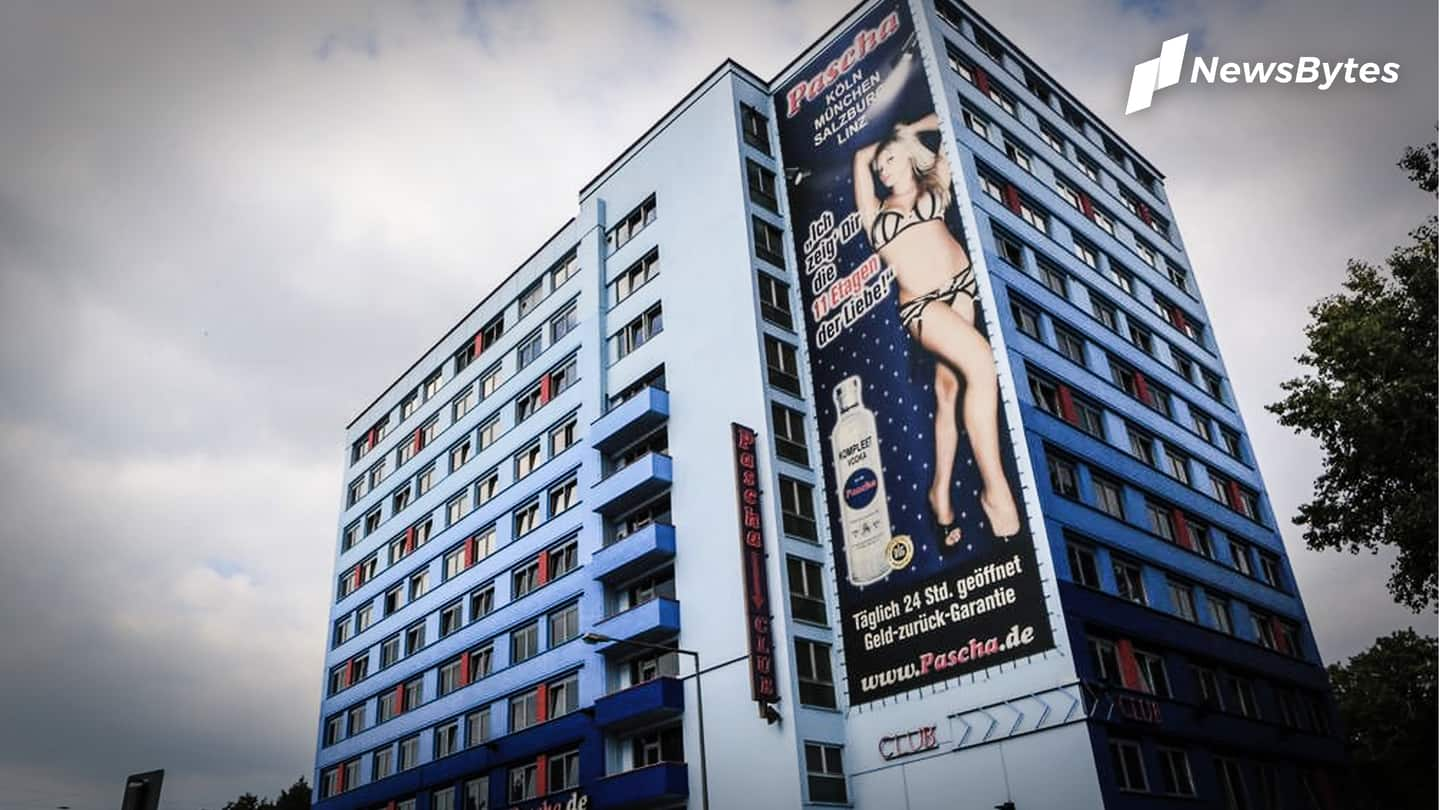
Pounded by coronavirus pandemic, Europe's largest brothel files for bankruptcy
What's the story
Europe's largest brothel has become the latest victim of COVID-19, the disease which has shattered economies, killed thousands and sickened millions.
Pascha, a major landmark in Germany's Cologne has filed for bankruptcy, multiple reports confirmed.
The brothel's Managing Director Armin Lobscheid said it is kind of "unimaginable," but he really went to a local court for further proceedings.
"We are finished," he declared.
Impact
Germany banned prostitution after virus outbreak, brothel suffered
To curtail coronavirus spread, Germany imposed a ban on prostitution nearly five months ago, a move that adversely affected Pascha.
Lobscheid said the brothel exhausted all of its reserves during the ban and now has no money left to sustain itself.
Nearly 60 employees, including masseurs and cooks, work from the multiple-story building, and some 120 prostitutes also earn money through this brothel.
Blame
Pascha blamed German authorities; said banks should have helped
Lobscheid blamed Germany's poor handling of the pandemic for the current situation. He said every two weeks the officials would tell them they can't open for business.
"We can't plan like that. We might have been able to avert bankruptcy with the help of the banks if we had been promised that things could start again at the beginning of next year," he said.
Quote
With "market leader" going down, other brothels are also worried
The development concerning Pascha sent other brothels in a tizzy. Saying that people were aghast to know about the situation, Lobscheid added, "But in the end, it is about that we have run out of money. And then we have no other choice."
Aftermath
Uncertainty has also engulfed the owner of skyscraper housing Pascha
Pascha's biggest source of income was the rent paid by prostitutes — a Telegraph report claimed they gave nearly 175 euros for using a room for 24 hours. The interiors of the skyscraper that nestled the brothel were also changed in accordance with the business.
But now the building owner Timoste Appartementhotel Schildbach KG is unsure of what to do with the high-rise structure.
Future
Naturally, the building can not work as hotel
It is unlikely that the building would work as a hotel or refugee accommodation as it would have to be refurbished extensively.
"We now have to clarify many questions with the insolvency administrator. The house has to be heated over the winter, otherwise it would degenerate into a dilapidated ruin," Lobscheid told local newspaper Express.
Letter
Earlier, German lawmakers suggested making prostitution illegal
While the closure of brothels was supposed to be temporary, at least sixteen prominent lawmakers called for a complete ban on buying sex in Germany, saying prostitutes could become "super-spreaders."
The lawmakers, some of whom belonged to Chancellor Angela Merkel's CDU Party, argued that reopening the brothels won't help the women.
"They need apprenticeships, training or work in a secure job," the letter read.
Details
After lawmakers' letter, sex-workers wrote to them, revealed their side
After the lawmakers expressed keenness for a permanent ban, Germany's Federal Association of Sex Services (BSD) wrote to them listing reasons why brothels should be reopened, just like other businesses.
BSD presented the lawmakers with a "hygiene concept" saying the number of sex workers in one brothel should be capped.
The letter also slammed lawmakers for suggesting sex workers could become "super-spreaders."
Concerns
Banning prostitution would prove perilous for sex workers, believe some
Organizations, working with sex workers, are worried that a complete ban would shift the business underground, exposing prostitutes to greater risk.
Lobscheid also indicated the same, by saying that since demand hasn't dipped, sex workers meet customers in hotels, apartments, cars, and mobile homes.
"They no longer enjoy any protection and are helplessly exposed to their pimps and suitors," he added.